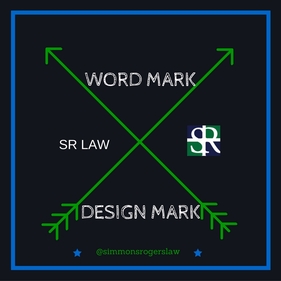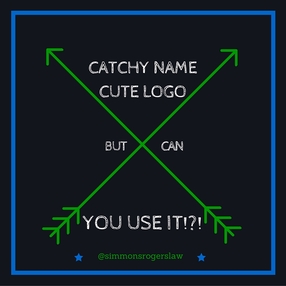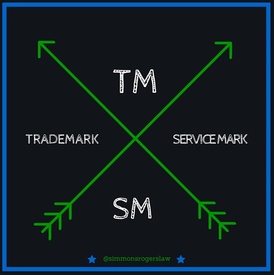 A Power of Attorney (“POA”), is legal document that allows you to name one or more persons to help you handle your financial affairs. It is an essential part of your estate planning. Despite popular belief, estate planning is not limited to figuring out how to distribute your stuff after your death. It also includes planning for the chance that you might be incapacitated at some point in life. If you are incapacitated, it means you lack the mental or physical capacity to sufficiently care for yourself or your property. Incapacitation can be temporary, intermittent, or permanent. You might be temporarily incapacitated physically if you are traveling abroad for an extended period of time. You might be physically and/or mentally incapacitated following a medical procedure. In some cases, a doctor would conduct a psychological exam to determine whether you are mentally incapacitated. In other cases, incapacity may be obvious based on your inability to communicate, if you were in coma, for example. If you become incapacitated, there are acts and decisions related to your finances that must be made on your behalf, such as paying your bills, managing your investments, and possibly employing various service providers. That is where the need for a financial power of attorney prepared by an estate planning lawyer with knowledge of the laws in your state comes into play. Every state has different rules regarding the proper execution of a POA and if the rules are not followed then the POA may not be honored by third-parties or enforceable by law. With a financial POA, you appoint an agent, the person you give the power to handle your financial affairs. You can limit the power and only allow them to do specific things or you can give them power over everything, including but not limited to the power to sell, rent, or mortgage your home, pay your bills, cash or deposit checks, buy and sell your investments, or manage your personal items. However, a financial POA document does not give someone the power to make medical decisions on your behalf. In Georgia, that power is given through an Advanced Medical Directive. There are three main advantages to executing a financial POA: 1. You Have the Power: You decide who your agent will be. You decide which powers to give your agent and you decide when the agent’s power starts and stops. You can make the POA effective immediately, provide a specific start and stop date, or have a start date that is triggered by a future incapacity. Even with a POA in place, you can still handle your own financial affairs as long as you choose to or are able to. More importantly, you may cancel or revoke the POA at any time. 2. It’s Quick and Easy: You don’t have to go through all of your finances and assets. All you need to know is who you want to appoint as your agent and which powers you would want your agent to have. Once your estate planning lawyer understands your wishes, your FPOA can be drawn up and executed or you can wait and execute it with all of your other estate planning documents. 3. You Can Avoid Probate Court. If you become incapacitated and your family cannot agree on who will manage your finances, they could end up in probate court asking a judge to appoint a guardian or conservator for your property. Since court proceeding are public, if they go to court your personal affairs will be public. Plus, the legal dispute could cause an irreparable rift between your family members. In Georgia, you can avoid this by making sure your financial POA is durable. If you have a durable financial POA in place, your family can save a lot of money on the legal expenses associated with probate court and lawyers, keep your affairs private and avoid internal fighting over who has the power to manage your stuff. Your POA will remain in effect until your death, even if you become incapacitated or unable to communicate your wishes, unless: (1) a guardian/conservator is appointed for your property, (2) you include a date or specific occurrence when you want your POA to be canceled, (3) you revoke your agent’s power, or (4) your agent and all successor agents die before you. Upon your death your POA will be canceled and your Last Will and Testament will govern the distribution of your assets. If you have questions about your estate plan, need a power of attorney, or need assistance with estate planning generally, you can contact us. We help clients across the state of Georgia and would love to help you.  When you are involved in an auto accident in Georgia, waiting on the police to arrive and write a report is always advised. However, you might be surprised to learn that you might not receive a copy of the police's report, also referred to as an accident report, incident report, or crash report, at the scene of the crash. If you are involved in a wreck, you should always get the other parties name in addition to their contact information, driver's license number, car tag, and their car insurance information in case you need to make a claim. In Georgia, there are several ways for you to obtain a copy of the police report: 1. You can contact the records department of the issuing officer's agency, For example, if an Atlanta Police Officer writes the accident report, you can contact the Atlanta Police Department's Central Records Unit at 404-546-7461.
2. You can obtain a copy of the crash report by visiting www.BuyCrash.com. The fees for reports start at $5 and reports are typically available 7-10 business days after the accident. To find a copy of your police crash report, you will need the following information:
3. You can also contact the Georgia Department of Transportation at 404-631-1990 for a copy of the accident report. The cost for a report is currently $5 or $7 for a certified copy. In addition to the police report, you may be able to obtain photographs and other records pertaining to your automobile wreck. It is important to note that Georgia law restricts access to accident reports. Georgia's Open Records Act, O.C.G.A. Section 50-18-72 (a)(5), specifies who can access Georgia accident reports. So, if you were not one of the parties involved in the accident, you want to make sure you have the legal authority to request a copy of the accident report. Likewise, beware if receive unsolicited calls about your accident from a "lawyer referral source" or a lawyer. If you were in an auto accident in Georgia and someone else was at fault, you should contact a Georgia personal injury attorney who can help you understand your legal rights under Georgia law.  On November 5, 2016, we celebrated our third anniversary! That's right, we are three and we are so thankful for the growth the firm has experienced over the last year! While the firm has not done a lot of advertising in the past we have continued to grow. We realize this growth is due in large part to other people and we are grateful. We are continuously humbled by all of the client referrals and referrals from colleagues. We believe that these referrals reflect our commitment to going above and beyond for our clients. To our clients, we say thank you for choosing the law firm of Simmons Rogers, LLC to represent you. We also say thank you to all of our colleagues, friends, and family for your referrals and support! We would not be celebrating 3 without you!  As you prepare to register your mark, you have to decide if you are going to register a standard character drawing, also known as a word mark, or a special form drawing, also known as a design mark. You might be wondering, what is the difference between the two drawings? For starters, a standard character drawing consists solely of words, letters, or numbers and protects the wording itself. While a special form drawing protects a specific design which could include colors, words, special drawings/characters, etc. A standard character drawing/word mark, protects only the registered word, without regards to any particular font, style, size, or color. Because a standard character drawing/word mark protects the word in any format, it provides the broadest protection for its owner. According to the United States Patent and Trademark Office ("USPTO"), in order to qualify as a standard character drawing/word mark, the mark must have the following characteristics: • No design element; • No stylization of lettering and/or numbers; • Any letters and words in Latin characters; • Any numbers in Roman or Arabic numerals; and • Only common punctuation or diacritical marks. A special form drawing/design mark, on the other hand, is for everything else. If your mark includes a particular style of lettering, particular color(s), special designs, pictures, etc., with or without words, you do not qualify for a standard character drawing/word mark and must file a special form drawing/design mark. There are lots of rules that apply when filing a special form drawing/design mark. For example, if color is not a feature of the special form drawing/design mark, then a black-and-white drawing should be filed. Many brands register both a word mark and a design mark because they protect different things. As you develop your intellectual property strategy for your business, be sure that you consider what needs to be protected and how you can protect it. For more information on trademarks, checkout our blog, visit the Trademark section of the USPTO, and/or contact your favorite attorney.  You finally came up with the perfect name and/or logo for your brand but can you use it? Did you check to see if someone already trademarked your brilliant idea? Even if your exact idea is available, have you checked to see if it is similar to someone else's trademark. You can't use your mark if there is a "likelihood of confusion". What is likelihood of confusion? Essentially, likelihood of confusion exists when (1) the marks of the parties are similar and (2) the goods and services associated with the marks are related in such a way that people are likely to believe they are from the same source. To determine if your new name or logo is confusing, you have to look to see if the mark looks like, sounds like, has a similar meaning, or creates a similar overall commercial impression to the registered mark. For example, if your name is "The Mane Tamer" for natural hair products and someone else has registered "The Main Tamer" for chemical perms then you should probably pick another name. Why? Because these names look alike, sound alike when spoken, and arguably have similar meanings. Which means the first element in the likelihood of confusion test has been met. The second element deals with the goods and services being sold. Since the names are for related products, remember the goods or services don't have to be identical to be confusing, then the name you chose "The Mane Tamer" is probably going to fail the second element likelihood of confusion test too. As such, your application for a trademark will be rejected by the United States Trademark and Patent Office ("USPTO"). Even if the USPTO did not find a conflict during their initial review, the owner of "The Main Tamer" would oppose and contest your mark and cause your application for the trademark "The Mane Tamer" to be rejected. If your name "The Mane Tamer" was in reference to horse grooming, then the likelihood of confusion would be significantly reduced and you would stand a better chance of being able to register your mark. You're a problem solver and you want to keep your name, so perhaps you are thinking you can just use the name without registering it. Wrong! Even if you don't file for a trademark, if you use the name on your natural hair products, the owner of "The Main Tamer" trademark could sue you for trademark infringement. In order to avoid all of these unpleasantries, when you are selecting a trademark for your business, be careful not to select one that causes a likelihood of confusion with another trademark. How do you do that? By performing a search for similar marks that are used on related goods and services before adopting your trademark. This is called a "clearance search" and involves searching federal and state trademark registration databases. It also involves a search for unregistered common law trademarks by searching the Internet for similar marks being used for goods and services related to yours. If you don't know how to perform a clearance search a trademark lawyer can assist you. It is much easier and cheaper to do the search before you waste resources building a brand only to later find out you can't use it and have to spend even more resources rebranding.  Have you ever seen these symbols and wondered what they are? "TM" and "SM" are usually used with an unregistered trademark or service mark, to inform the public that a term, slogan, logo or other indicator is being claimed as a trademark. "TM" and "SM" are also used when an owner has applied for trademark registration. While the use of the TM or SM symbol is not equal to federal registration. Using your trademark, in commerce, with specific goods and services, establishes legal rights in the mark, known as "common law" rights. You are entitled to these common law rights regardless of whether you use the TM or SM symbols in connection with your mark. However, these common law rights are limited. For example, in some situations, common law trademark rights for unregistered trademarks will only cover a limited geographic area. So what is a trademark? A trademark is a brand name. It is a word, phrase, design, or a combination thereof that identifies and distinguishes the source of goods of one party from those of others. In other words, a trademark lets your consumers know that your goods come only from you and not from anyone else. What is a service mark? A service mark is the same as a trademark, except that it identifies and distinguishes the source of a service rather than a product. When you see the terms "trademark" or "mark" used in reference to intellectual property, you should know that the terms "trademark" and "mark" refer to both trademarks and service marks. For more information on trademarks, check back with the blog for Part 2 of the Intellectual Property: Trademarks and Service Marks post, visit the Trademark section of the United States Patent and Trademark Office or contact your favorite attorney. What do the following music legends: Amy Winehouse, Bob Marley, Jimi Hendrix, Kurt Cobain, and Sonny Bono have in common with Prince? They all died without a will. Whether legend or unknown; rich or poor; young or old; we are all human at the end of the day. As humans, we all have a tendency to put uncomfortable things on the back burner. Talking about death and dying is uncomfortable, so although we know that we need to have a plan in place we put it off. However, avoidance is not the answer. The decision to avoid unpleasant things often ruins families. Bob Marley has been dead for over 30 years and his family is still fighting over his estate. Jimi Hindrix's family also fought over his estate for 30+ years. While you may not have millions, music, or a famous name to fight over, families are often torn apart over the family home, money, cars, jewelry, and other material things. Even if there is no fight, your decision not to have a will can have unintended consequences such as a family member you dislike or a family member you never knew existed inheriting your stuff. Even if what you own does not seem like much to you a will and proper estate planning can help ensure that your family isn't divided over what they think you wanted to happen to your stuff or what they want to do with your stuff. Plus your stuff will go to those whom you desire to have it. Proper estate planning will also address your needs before death if you are incapable of making decisions for yourself. As Wendy Williams said: "wills are not just for rich people, they're for people, people, people!" Check out the clip of Wendy Williams discussing the importance of estate planning below. Please be aware that every state has different laws regarding wills and the probate process so be sure that you consult a licensed attorney in your state for specific advice. If you live in Georgia, the law firm of Simmons Rogers, LLC is here to assist you with all of your estate planning needs.
Maya Simmons Rogers Selected As One of The National Black Lawyers 2016 Top 40 Lawyers Under 403/30/2016
FOR IMMEDIATE RELEASE
Simmons Rogers, LLC Announces That Maya Simmons Rogers Was Selected As One of The National Black Lawyers - Top 40 Lawyers Under 40 
Simmons Rogers, LLC is pleased to announce that attorney Maya Simmons Rogers has been selected as one of The National Black Lawyers - Top 40 Under 40 in Georgia for the second year in a row. This honor is only given to a select group of lawyers based on their achievement, community involvement, leadership, superior skills and qualifications. Membership in this exclusive organization is by invitation only, and is limited to the top 40 attorneys under the age of 40 in each state or region who have demonstrated excellence and have achieved outstanding results in their careers. Attorney Rogers has also been selected to serve on the Executive Committee for The National Black Lawyers - Top 40 Under 40. The National Black Lawyers- Top 40 Under 40 is an invitation only professional honorary organization composed of the leading Top 40 Black Lawyers under the age of 40 from each state who serve individuals, families and businesses needing attorneys to represent them in the American legal system. The National Black Lawyers organization provides accreditation to these distinguished attorneys. By being selected, Attorney Maya Simmons Rogers has shown that she exemplifies superior qualifications, leadership skills, and has achieved successful results for her clients. The selection process for this elite honor is based on a multi-phase process which includes peer nominations combined with third party research. As The National Black Lawyers - Top 40 Under 40 is an essential source of networking and information, the final result of the selection process is a credible and comprehensive list of the most outstanding lawyers chosen to represent their state or region. Maya Simmons Rogers, a graduate of Florida A&M University and the University of Michigan Law School, is no stranger to hard work. Over the course of her career, Maya Simmons Rogers has worked hard for her clients in and out of courtrooms all across the state of Georgia. Last year she was awarded a contract with the state of Georgia to assist with the state's criminal justice reform efforts. Attorney Rogers looks forward to another amazing year and is thankful for the recognition by The National Black Lawyers. To learn more about Attorney Rogers and the law firm of Simmons Rogers, LLC, visit www.simmonsrogerslaw.com. To learn more about The National Black Lawyers, visit www.NBLTop100.org.
 We don't always like to acknowledge or discuss our mortality but the fact remains that life the way we know it could change at any moment. That is why estate planning is so important. Estate planning is more than just having a will or setting up a trust. It also helps you plan for situations when you are still alive but can't communicate or make decisions, such as if you are in a state of unconsciousness. The question becomes who will speak for you and make decisions on your behalf? Under the Georgia Advance Directive for Health Care Act, you have the right to make choices about your health care in advance through a legal document known as an advance directive for health care. An advanced directive allows you to speak when you are unable or unwilling to do so by allowing you to list your wishes about medical care and treatment and/or allowing you to choose a person to make medical decisions for you. An advanced directive for health care also allows you nominate a person to serve as your guardian in case a court decides that a guardian should be appointed. A court will appoint a guardian for you if the court finds that you are not able to make significant responsible decisions for yourself regarding your personal support, safety or welfare. You may nominate your health care agent to be your guardian, but you have are free to nominate someone else. You should be aware that the advanced directive for health care does not give your health care agent or guardian the power to manage your property or financial affairs. You may feel like the content of the advanced directive for health care sounds familiar but you thought there was a different title. That's because people used to have living wills to provide instructions on treatment preferences for a terminal condition and state of permanent unconsciousness and a durable power of attorney for health care to appoint a health care agent. However, in 2007, the advanced directive for health care replaced both the durable power of attorney for health care and living wills in Georgia. If you have a durable power of attorney for health care or a living will that was executed before 2007, they remain effective. However, it would be a good idea for you to replace them with an advanced directive. It is important for pregnant women or women who may become pregnant to understand that the directives they select in their advance directive may not be carried out. If the baby is developed enough that the baby could survive post delivery, any directives that would result in withholding or withdrawing life sustaining treatments will not be honored. Even if the baby is not developed enough to survive delivery, a pregnant woman's directives will not be honored unless she has specifically noted that she does not want life sustaining treatment if she is pregnant with a non-viable infant. Once you have completed your advanced directive you should give a copy to your health care provider, especially if you are going in for any procedure or surgery, including giving birth. You should also give a copy to the person you designate as your health care agent and your family. It is also a good idea to keep something in your wallet that would inform medical providers that you have an advanced directive and who to contact in case of emergency. Like all estate planning, your advanced directive will only be honored if it complies with Georgia law. Your advanced directive for health care can be revoked or amended at any time and may be revoked as a matter of law upon marriage or divorce. While the decision to have an advanced directive is completely voluntary, if you have a properly executed advanced directive for health care, you can ease the burden on your love ones during an already difficult period. Your advanced directive for health care can eliminate confusion about your wishes and diffuse any disagreement among family members over health care decisions. Contact the Atlanta based law firm of Simmons Rogers, LLC for help with your advanced directive and all of your other estate planning needs. We work with clients all across the state of Georgia and we would love to work for you. |
Simmons Rogers, LLCSimmons Rogers, LLC is a full- service civil law firm based in Atlanta, Georgia. We provide legal services as well as mediation and arbitration services, to businesses and individuals throughout the state of Georgia and beyond. Archives
January 2018
Categories
All
This blog is not intended to be a complete explanation of the law. Its purpose is to inform, not to advise on any specific legal problem or legal rights. If you have specific questions regarding any topic in this blog, you are encouraged to consult the Atlanta based law firm of Simmons Rogers, LLC or an attorney licensed in your
state. |

Simmons Rogers, LLC
4045 Orchard Rd SE, Suite 210 Smyrna, Georgia 30080 Phone: 404-445-8146 Fax: 404-445-8226 E-mail: [email protected] |
LEGAL DISCLAIMER
The information on this website is for informational purposes only and is not legal advice. Use of this website does not create an attorney-client relationship between you and Simmons Rogers, LLC. You should not act upon the information within this website without seeking advice from a lawyer licensed in your own state or country. You should not send any confidential information to Simmons Rogers, LLC until and unless a formal lawyer-client relationship has been established in writing. Unless you have received such written confirmation, we will not consider any correspondence you send us as confidential. |
© 2013-2018. All Rights Reserved. Simmons Rogers, LLC
Attorney Advertising. The choice of a lawyer is an important decision and should not be based solely upon advertisements.
Privacy Policy
Attorney Advertising. The choice of a lawyer is an important decision and should not be based solely upon advertisements.
Privacy Policy



 RSS Feed
RSS Feed